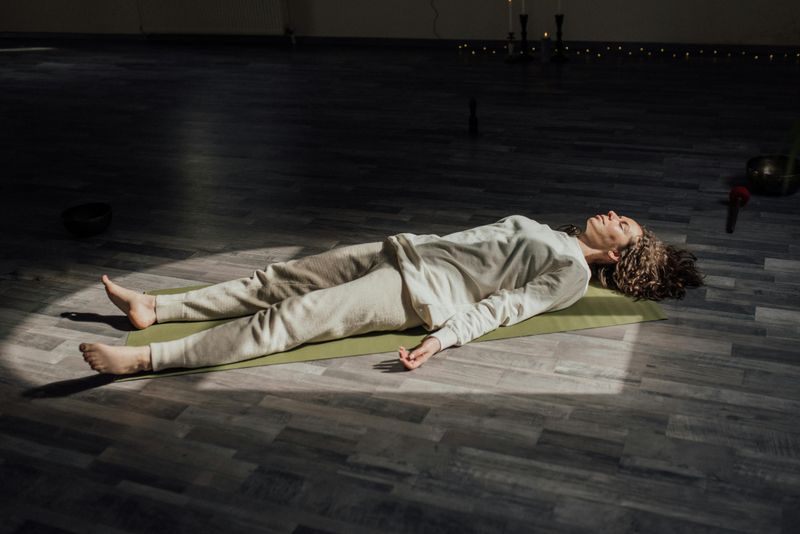We live in a world that celebrates busyness, where being constantly active feels like the only way to succeed. But what if the secret to feeling happier, thinking clearer, and living better is actually found in moments of stillness? Rest is not laziness—it’s a powerful tool that recharges your mind, sparks creativity, and helps you become your best self.
1. Your Brain Needs Time to Wander

Ever notice how your best ideas pop up when you’re not even trying? That’s because your brain has a special mode called the default mode network that kicks in during downtime. When you stop focusing on tasks, your mind starts making unexpected connections between memories and thoughts.
This mental wandering isn’t wasted time—it’s when creativity blooms. Students who take breaks often solve problems faster than those who push through without stopping. Scientists have found that daydreaming helps process emotions and plan for the future.
So next time you catch yourself staring out the window, don’t feel guilty. Your brain is actually doing important work behind the scenes, organizing information and cooking up fresh ideas you’ll need later.
2. Stress Melts Away When You Stop Moving

Constant activity floods your body with cortisol, the stress hormone that makes you feel anxious and tired. When you deliberately do nothing, cortisol levels drop, and your nervous system shifts into relaxation mode. Think of it like hitting the reset button on an overheated computer.
Just fifteen minutes of quiet sitting can lower your heart rate and ease muscle tension. Your body interprets stillness as a signal that everything is okay, which triggers a calming response throughout your entire system.
People who practice regular rest report feeling less overwhelmed by daily challenges. They sleep better, laugh more, and handle unexpected problems with greater ease because their stress bucket isn’t constantly overflowing.
3. Productivity Actually Increases With Proper Breaks

Here’s something surprising: working nonstop makes you less efficient, not more. Your brain’s attention span has limits, and pushing past them leads to mistakes and slower thinking. Marathon study sessions might seem productive, but they’re actually counterproductive.
Research shows that taking intentional breaks helps you maintain focus when you return to work. Athletes understand this perfectly—they build rest days into training because muscles grow stronger during recovery, not during the workout itself. Your brain works the same way.
Try the simple strategy of working for focused periods, then stepping away completely. You’ll finish tasks faster and with better quality because your mental energy stays fresh throughout the day.
4. Boredom Sparks Unexpected Breakthroughs

Boredom gets a bad reputation, but it’s actually a gateway to self-discovery and innovation. When there’s nothing to distract you, your mind starts exploring questions you normally ignore. Who am I? What do I really want? These big thoughts only surface when smaller distractions disappear.
Many famous inventors and artists credit their best work to moments of complete boredom. Without constant entertainment, your brain starts creating its own fun through imagination and curiosity. Kids who experience regular boredom develop stronger creative thinking skills.
Instead of immediately reaching for your phone when nothing’s happening, try sitting with the uncomfortable feeling. You might discover interests, solutions, or insights that were buried under layers of constant stimulation.
5. Sleep Quality Improves When You Schedule Stillness

Racing from one activity to another all day creates internal momentum that’s hard to stop at bedtime. Your mind keeps spinning even when your body hits the pillow. Building rest periods into your day teaches your system how to downshift gradually.
People who practice doing nothing for even ten minutes before bed fall asleep faster and wake up feeling more refreshed. This quiet time signals your brain that the day is winding down, which triggers the release of sleep hormones like melatonin.
Think of it as creating a runway for sleep rather than slamming on the brakes. Your body needs transition time between high activity and deep rest, just like planes need distance to land safely.
6. Relationships Deepen Through Shared Quiet Moments

Not every moment with friends needs to be filled with talking or activities. Some of the strongest bonds form during comfortable silences where you simply exist together. These quiet moments build a different kind of closeness that constant chatter can’t create.
When you’re always doing something entertaining, you never learn to just be with another person. Shared stillness teaches patience, acceptance, and genuine presence. You start noticing small details about people that busy activities hide.
Families who spend even a few minutes together in peaceful silence—watching a sunset, sitting after dinner—report feeling more connected. The magic happens when you stop performing and start simply sharing space and time without any agenda.
7. Your Body Heals Faster During True Rest

Physical recovery isn’t just about sleeping—it happens during all restful states. When you stop moving and thinking intensely, your body redirects energy toward repairing cells, fighting inflammation, and strengthening your immune system. Athletes know that rest days are when muscles actually rebuild stronger.
Constant stress keeps your body in emergency mode, which suppresses healing processes. Regular periods of doing nothing tell your system it’s safe to focus on maintenance and repair. Even your digestion works better when you’re relaxed.
Young people especially need this downtime because their bodies are still growing and developing. Skipping rest can lead to getting sick more often, feeling exhausted, and taking longer to bounce back from physical challenges.

Comments
Loading…